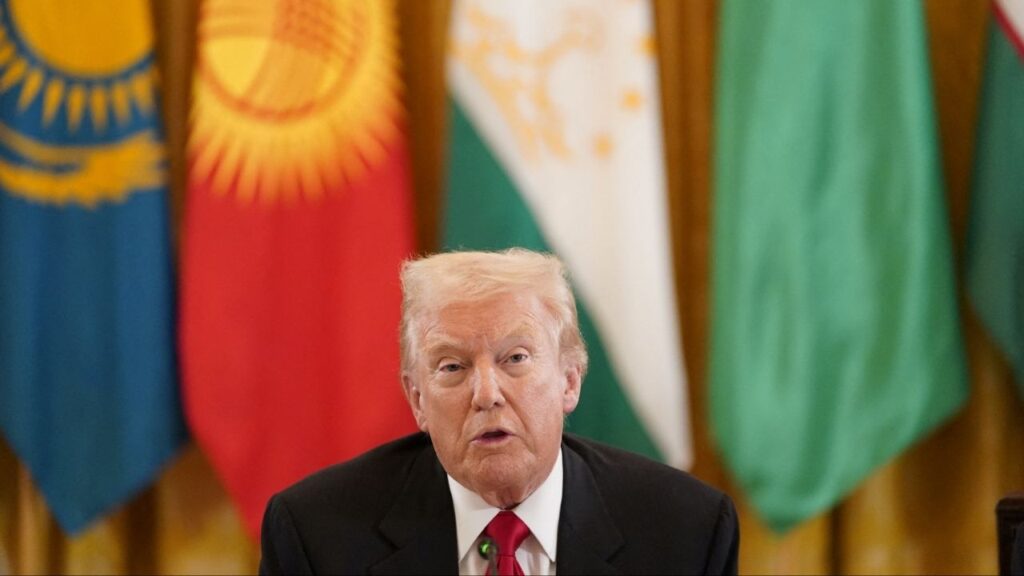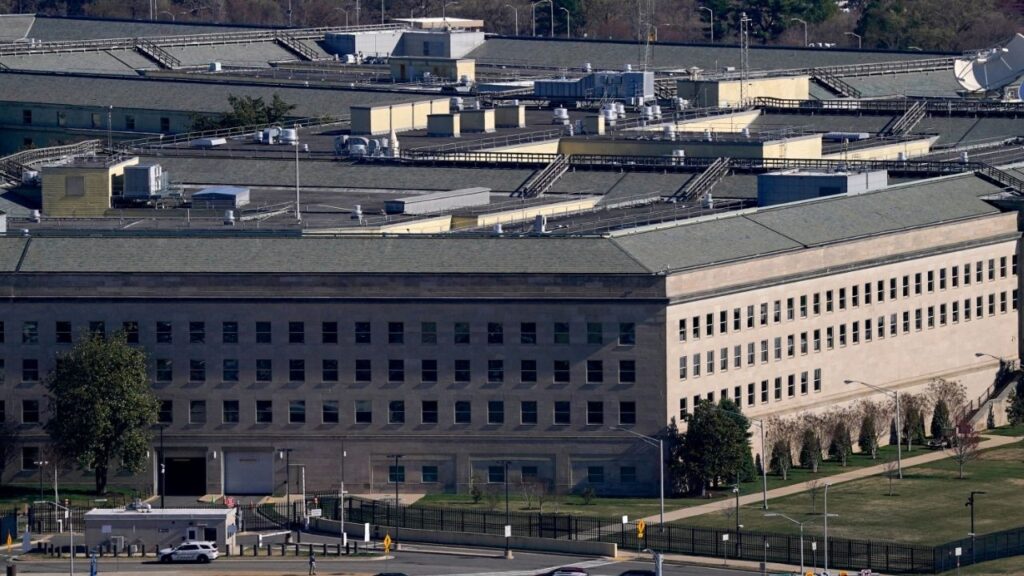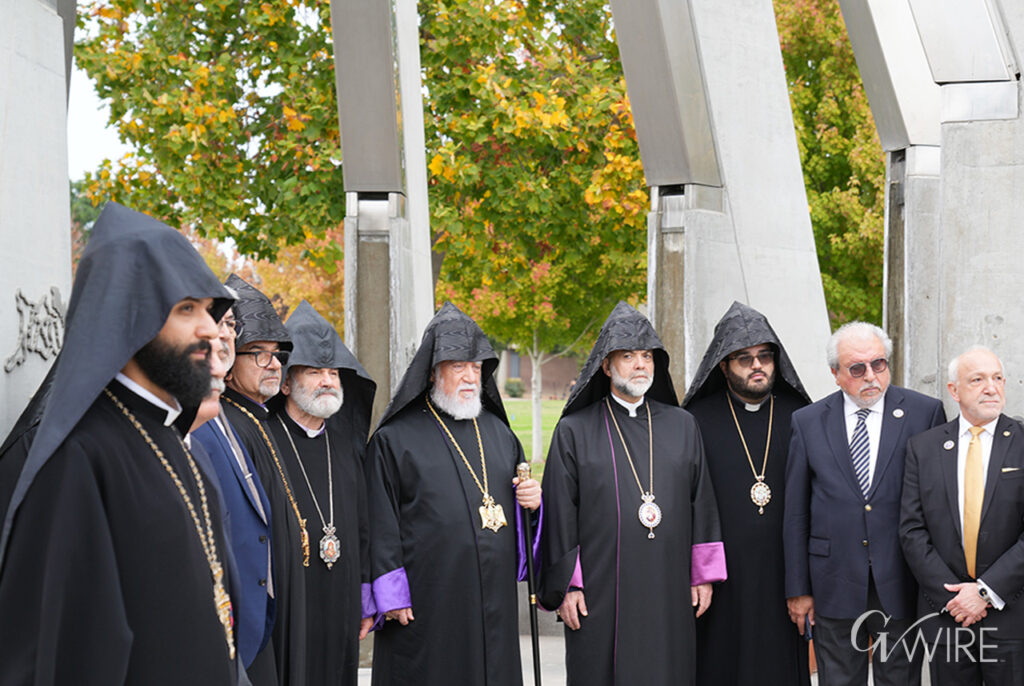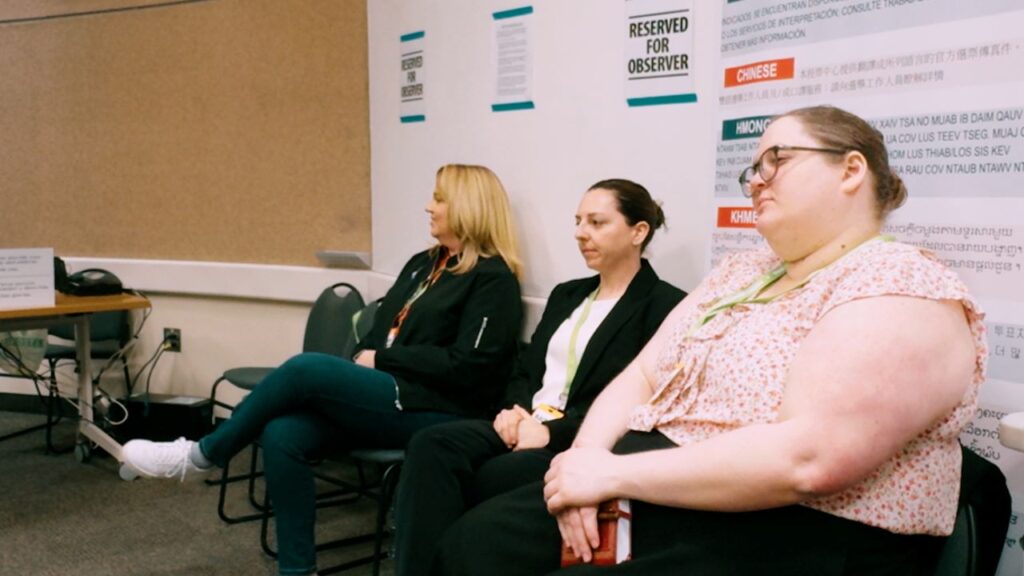Mahmoud Khalil speaks during a press conference about students who were arrested and suspended for protesting at Columbia University, near the campus in New York, April 22, 2024. A New York federal judge on Wednesday transferred the case of a Columbia University graduate detained by the Trump administration this month to New Jersey, where his lawyers will continue their efforts to seek his release. (Bing Guan/The New York Times)

- The Trump administration seeks to deport Mahmoud Khalil under a largely untested 1952 law.
- In 1996, Trump’s sister ruled the 1952 law unconstitutional due to vagueness and discretion.
- The law grants unreviewable discretion to the secretary of state, violating constitutional principles.
Share
|
Getting your Trinity Audio player ready...
|
WASHINGTON — The 1952 law under which the Trump administration seeks to deport Mahmoud Khalil, a lawful permanent resident who helped organize protests at Columbia University, is largely untested.
Largely, but not entirely. It was ruled unconstitutional in 1996 — by President Donald Trump’s sister.
Trump does not have much use for a lot of judges. Last week, for instance, he called for the impeachment of “many of the Crooked Judges I am forced to appear before.” But he held his sister, Judge Maryanne Trump Barry, in high regard.
“I will never forget the many times people would come up to me and say, ‘Your sister was the smartest person on the Court,’” he posted on social media when she died in 2023. “I was always honored by that, but understood exactly what they meant — They were right! She was a great Judge, and a great sister.”
When Barry considered the 1952 law, which the Trump administration has said will play a major role in its deportation plans, she asked whether it could be squared with the Constitution. “The answer,” she wrote, “is a ringing ‘no.’”
At the time, Barry was a federal trial judge, and so her ruling did not establish a precedent binding on other courts. In any event, an appeals court later reversed her decision, although on grounds unrelated to its substance.
But it remains the most thorough judicial examination of the constitutionality of the law, and other judges may find its reasoning persuasive.
The case involved Mario Ruiz Massieu, a former Mexican official whom the Clinton administration sought to deport to Mexico. The secretary of state at the time, Warren M. Christopher, told Ruiz Massieu precisely the same thing that Secretary of State Marco Rubio told Khalil: “Your presence or activities in the United States would have potentially serious adverse foreign policy consequences for the United States.”
Barry Said the Sentence Was ‘Chilling’
That sentence was chilling, wrote Barry, who was appointed to the U.S. District Court in New Jersey by President Ronald Reagan after lobbying by Trump’s mentor and fixer, Roy M. Cohn.
The law, she wrote, “confers upon a single individual, the secretary of state, the unfettered and unreviewable discretion to deport any alien lawfully within the United States” if “that person’s mere presence here would impact in some unexplained way on the foreign policy interests of the United States.”
That violated the Constitution in at least two ways, Barry wrote. First, she said, it was too vague to give notice to the people subject to it of what conduct it prohibited.
Under the law, she wrote, “all legal aliens, whether here for a day or 50 years and visiting or resident in this country, must live in fear of the secretary of state informing them, at any time, that our foreign policy requires their deportation to a particular country for reasons unknown to them and beyond their control.”
She emphasized that the law applied to, among others, “lifelong permanent residents.”
“For those who have been in this country for a substantial period of time,” she wrote, “it would mean the loss of all they had built for themselves here and an irreparable disruption of the lives they had established.”
Barry Offers Another Reason for Striking Down the Law
Barry offered a second reason for striking down the law, saying that it was an unconstitutional delegation of legislative power to the secretary of state, granting him complete discretion.
The law ran afoul, she wrote, of the nondelegation doctrine, which forbids Congress from giving too much leeway to executive branch officials with insufficient guidance. The doctrine has been largely dormant since 1935, when the Supreme Court used it to strike down New Deal laws. But members of the court’s conservative majority have expressed an interest in reviving the doctrine.
The Supreme Court will hear arguments Wednesday on the scope of the doctrine in an unrelated case.
Barry’s ruling was reversed by the 3rd U.S. Circuit Court of Appeals, in Philadelphia, a court she would join in 1999 after being appointed by President Bill Clinton. The author of the appeal’s court’s opinion was Judge Samuel Alito, who would join the Supreme Court in 2006.
Alito did not address Barry’s constitutional rulings, saying instead that Ruiz Massieu had pursued his claims in the wrong forum. “We do not reach the merits of the constitutional questions decided by the district court,” he wrote.
In later years, Barry lamented her brother’s policies, notably the separation of children from their migrant parents in his first administration. In conversations surreptitiously taped by her niece Mary L. Trump and published in The Washington Post, Barry said she guessed her brother “hasn’t read my immigration opinions.”
—
This article originally appeared in The New York Times.
By Adam Litak/Bing Guan
c. 2025 The New York Times Company
RELATED TOPICS:
Categories

Kazakhstan to Join Abraham Accords, Trump Says

Who Will Replace Pelosi in Congress?


















